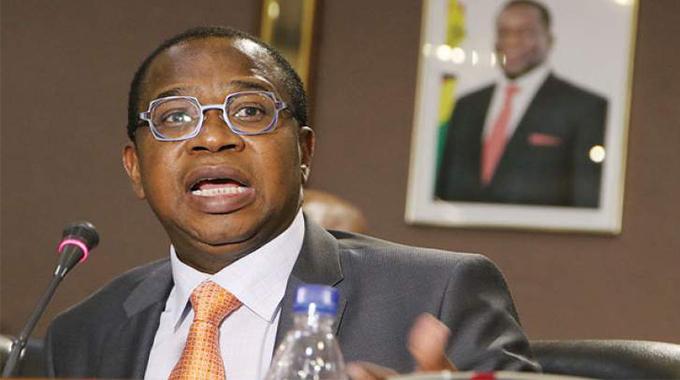New currency regime averts re-dollarisation

Martin Kadzere and Enacy Mapakame, Harare Bureau
The abolishment of the multi-currency system by Government will avert the country from plunging into full re-dollarisation at a time the economy does not have enough United States dollars to support it, some economic analysts have said.
With effect from yesterday, the Government declared the RTGS (now Zimbabwean dollar) as the sole legal tender, effectively abandoning multi-currency regime, which Zimbabwe adopted in 2009 when hyperinflation rendered the Zimbabwean dollar worthless.
The RTGS dollar was introduced in February this year as the first step towards ongoing currency reforms.
Government announced that the United States dollar, South African rand, Botswana pula and other foreign currency were no longer legal tender in Zimbabwe.
“It means that anyone who wants to buy goods from the shop or pay for services within . . . Zimbabwe ought to go to a bank, bureau de change or some other institutions to change their foreign currency into domestic currency and spend that whichever way they wish to spend. That’s what countries normally do, that’s what all countries do,” Finance and Economic Development Minister Prof Mthuli Ncube said.
The continued depreciation of the local currency against the US dollar has seen most businesses preferring to quote prices in forex in an economy where the majority of the citizens are getting incomes in RTGS dollars.
Analysts said it was going to be unsustainable “not to stop re-dollarisation” given that the country did not have enough US$ on the back of limited lines of credit resulting from sanctions.
“The policy makers saw that re-dollarisation is coming back and this was going to create a lot of problems since the economy does not have adequate resources to back dollarisation,” economist Dr Gift Mugano told our Harare Bureau in an interview yesterday.
Pressure continues mounting on employers, including the Government to pay salaries in US dollars as most goods and services are being priced in foreign currency.
“Zimbabwe is under sanctions and has been struggling to attract reasonable lines of credit and Foreign Direct Investment, which are major sources of liquidity under dollarisation.
“By not stopping re-dollarisation, it was going to be disastrous,” said an analyst with a local research firm.
“The move will go a long way in restoring most critical functions of the central bank, which will empower it to defend the value of local currency.”
National Business Council of Zimbabwe president Mr Langton Mabhanga said Zimbabwe needed its own currency for local transactions and limit the usage of foreign currency for importing.
“Everywhere in the world, people do not use foreign currency to transact locally,” said Mr Mabhanga in an interview yesterday.
“We had developed a culture where we would criss-cross currencies and this does not build competitiveness because all that foreign currency gets siphoned out of the country.
“Having our own currency is the way to go. What this means is we will have to run a tight foreign currency exchange platform that is free of leakages to ensure companies access foreign currency for their imports and other foreign obligations,” he said.
Mr Mabhanga, however, said enforcement of the new law would be crucial to ensure success of the reforms as well as tight control of the interbank market.
Economist Mr Persistence Gwanyanya, said this had come on the back of a depreciating RTGS dollar and Government had to step in to restore confidence in local currency.
“The RTGS$ was fast-depreciating against high preference for the greenback, which is a store of value and people wanted it as opposed to local currency. Even after instances where we had increased flow of foreign currency into the country, it was traded on the illegal parallel market as opposed to the official interbank market.
“In any normal economy, foreign currency is sold on the official interbank market for imports not local transactions. What we need is to build a strong foreign currency market,” said Mr Gwanyanya.
Some critics, however, said while the latest move was expected to see more foreign currency being off loaded on the interbank market, it was unlikely given that the largest chunk of forex might be in the informal sector.
“The question is who is holding the largest chunk of foreign currency?” another analyst said.
“If they are formal corporates, companies; which I doubt, then we are likely going to have improved inflows on the interbank market. But we will have problems if the biggest chunk of the foreign currency is held by the informal sector.”
Mr Gwanyanya said while the move was welcome, there must be confidence for it to work.
“The framework is good but there must be confidence for it to work. Lack of confidence has been a huge challenge and if Government is serious about this currency regime, there is need to ensure confidence is restored,” said Mr Gwanyanya.








Comments